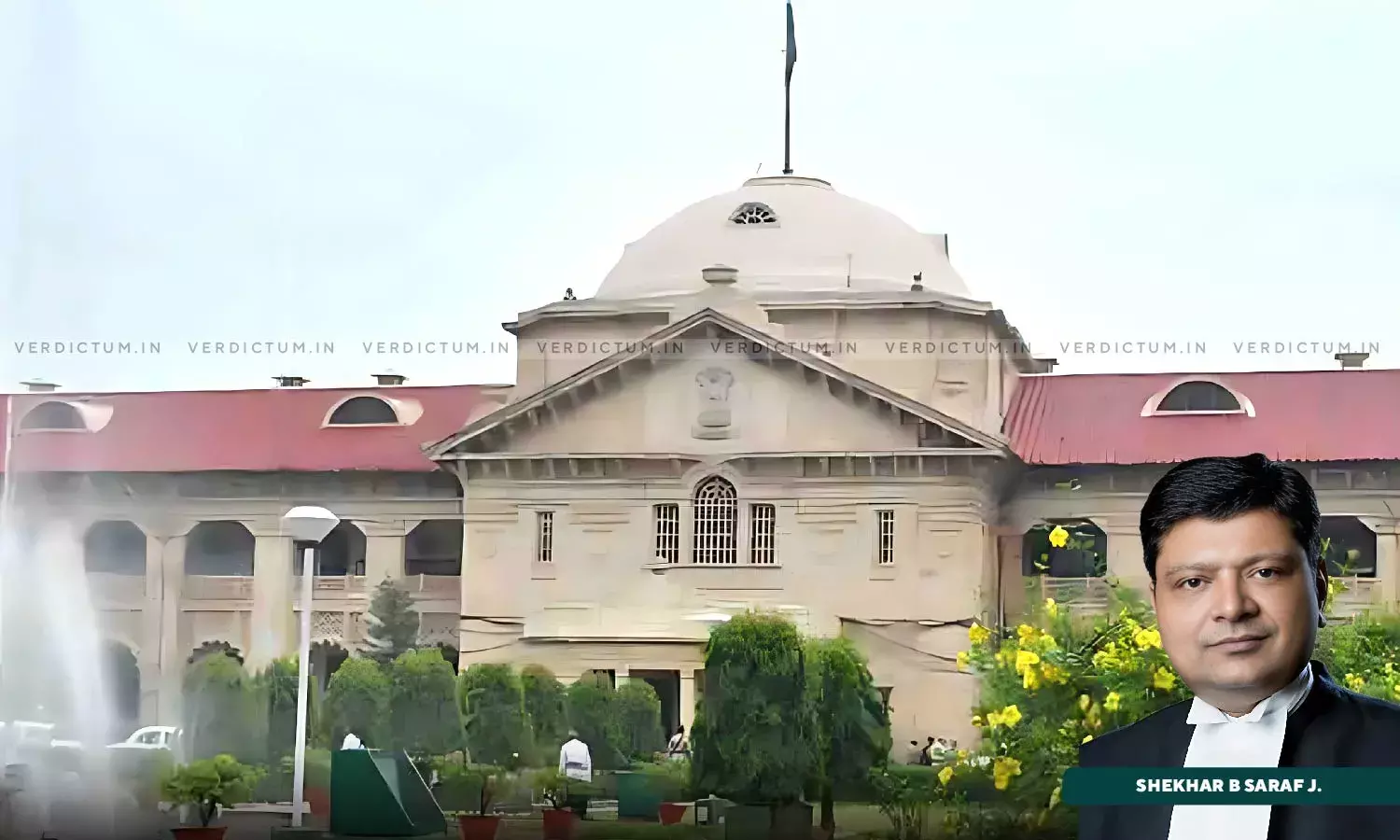Treating Government Delays Differently Would Set A Dangerous Precedent: Allahabad HC Proposes Dedicated Legal Teams To Ensure Timely Filing Of Appeals
The Allahabad High Court issued a directive to the Uttar Pradesh government, emphasizing the critical need to prevent appeals from being filed beyond the statutory limits.
A Bench of Justice Shekhar B Saraf highlighted the government's responsibility to establish a specialized procedure ensuring timely appeal filings. He rebuked the State for a delay of 224 days in filing an appeal related to an arbitration matter, emphasizing that such delays, especially in matters involving taxpayers' money, cannot be tolerated.
The Court said, “One of the key elements of such specialized procedures could be the creation of dedicated legal teams within each government department. These teams can be responsible for monitoring legal matters and ensuring that all necessary actions, including the filing of appeals, are taken within the prescribed time limits. By having a dedicated team in place, the government can ensure that there is a clear line of accountability and that legal matters are handled with the urgency they deserve.” These teams, composed of experienced legal professionals, were recommended to have the authority to act swiftly and decisively. Furthermore, the Court underscored the importance of robust tracking and monitoring systems to oversee case progress and ensure timely compliance with legal obligations.
Additional Chief Standing Counsel Rishi Kumar appeared for the Appellant and Advocate Mohd. Arish holding brief of Advocate Ashish Mishra, appeared for the Respondent.
To enforce these recommendations, the Court directed, “Accordingly, a direction is issued upon the Principal Secretary (Law), Government of Uttar Pradesh, to take necessary steps, in order to avoid the filing of appeals beyond the statutory time limits, by the Government. The Principal Secretary (Law) is also directed to submit a report before this Court on the action taken in this regard within 6 months from the date of this judgment. The Principal Secretary (Law) may take assistance of a committee of experts as may be required”
The Court reasoned that while bureaucratic and procedural delays are common within government bodies, they cannot justify extensions beyond statutory limits, particularly under the Arbitration & Conciliation Act. The Court said, “This principle is crucial for maintaining the rule of law, ensuring equality before the law, and preserving the integrity and efficiency of the arbitration process. The idea that the government should not be given preferential treatment in legal matters is fundamental to the concept of justice, which dictates that all parties, regardless of their status or resources, must adhere to the same legal standards and timelines.”
The Court added, “Granting the government special privileges in the form of extended time limits would violate this principle and create a perception of bias. Such a perception could undermine public confidence in the legal system, as it would suggest that the government is above the law and not subject to the same rules as everyone else. Treating government delays differently would set a dangerous precedent.”
The Court emphasized that efficient handling of legal matters, including timely appeal filings, is crucial for good governance and effective use of public resources. It called on the government to establish effective mechanisms to ensure compliance with statutory timelines, thereby upholding the integrity of arbitration as a swift and efficient method of dispute resolution.
Cause Title: State of U.P. & Ors. v. M/S Harish Chandra India Limited, [2024:AHC:106455]
Click here to read/download Order




